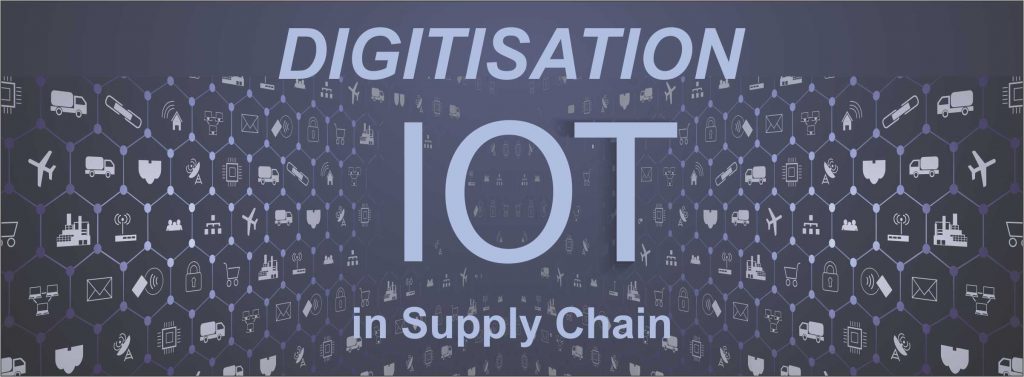
Digitisation in Supply Chain
by Mr. N. Jayendran, Chief Technology Officer.
Today’s enterprise is constantly challenged. Varying but specific customer demands, being profitable and at the same time delivering the Right goods and services at the Right quantum to the Right customer at the Right time, at the Right place, at the Right price and with the Right quality is important.
Enterprises are realizing the need to be responsive, resilient, timely and reliable while increasing efficiency and optimizing costs. This mandates them to transcend their walls and identify themselves with an integrated and collaborative supply chain eco-system away from a traditional one. Traditional supply chains have been a string of discrete siloed steps across functions within an organization. A Digitized supply chain is the backbone of an organization that provides it an edge, prepares it for Industry 4.0 revolution and enables it to transparently participate in collaborative commerce involving Suppliers, Logistics Providers and Customers. Organizations are now a part of a larger Digital Eco-system as contrary to supply chain being a function within.
Typically, supply chains operate along the SCOR model involving Planning, Sourcing, Making, Delivering, Returning and Enabling. Digitization, through technological innovations, revitalizes these elements into Supply Chain Visibility, Collaborative Planning, Smart Warehousing, Efficient Spares Management, Autonomous logistics and Prescriptive Supply Chain Analytics.
Integrated MRP and MES systems quickly simulate and assess the impact of the change in a demand on a corresponding supply across the value chain. A powerful WMS smartens a Warehouse by interacting with other allied systems like Customers’ systems, GPS, RFID sensors, Text-to-speech, ASR systems, Robotics, Autonomous logistics and Augmented Reality. It handles inbound, in-house and outbound processes efficiently in an otherwise labor-intensive environment. IoT sensors help manage ambience in warehouses. 3D printing ensures on-demand production fighting inefficiency in spares management.
Digitisation in Supply chain, with Technologies like IoT, RFID, GPS etc., acts as a single source of truth, and enables to proactively Track & Trace a supply and any potential exceptions of supply-demand imbalance. Big data allied with social listening help assess impact on the supply owing to external factors like weather, traffic etc. Advanced Analytics and Simulation technologies help optimize the supply chain. Information from various sources is fed into a Control Hub that proactively manages exceptions. Machine Learning and AI capabilities enable the Action to be automated.
Blockchain is another technology with great potential. Supply chain has started to harness Blockchain and its Smart contracts capabilities to offer quickness, transparency, traceability, fraud-arrests and authenticity.
Preparing for Digitisation in supply chain would mandate enterprises to re-orient themselves in certain aspects. They need to be a Collaborator and an effective partner, an Orchestrator, a Technology innovator and must measure and manage outcomes constantly.